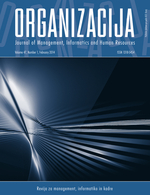Virtual Laboratory in Chemistry – Experimental Study of Understanding, Reproduction and Application of Acquired Knowledge of Subject’s Chemical Content
Abstract
Traditional teaching does not often allow very active involvement of pupils in class. In chemistry and natural sciences in general experimental and laboratory work is one of the most effective methods for acquiring knowledge. Experimental work can also be exercised using virtual world. Virtual laboratory offers some important advantages. Understanding chemistry involves the ability of cognitive comprehension on three levels: the macroscopic level, the symbolic level and the level of particles where the virtual laboratory can be an effective tool. On this basis a didactic experiment was performed in order to verify the effectiveness of virtual laboratory from pupils’ knowledge point of view. The experiment involved seventh grade pupils (N = 38). Furthermore, we tried to answer the question whether the learning results of pupils, according to the experimental design of classes using a virtual laboratory, are better than results gained through teaching classical science classes without visualization tools. The research of the didactic experiment carried out on a relatively small, pilot sample of pupils has shown that acquiring knowledge is more effective when using the virtual laboratory instead of classical teaching (in the case when classical approach does not include visualization elements crucial for learning and understanding chemistry).
Refbacks
- There are currently no refbacks.

